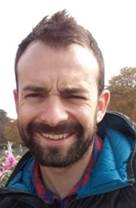Our laboratory investigates cellular and molecular mechanisms that underlie human ageing and its associated pathologies. Our research is relevant to advancing the understanding and treatment of pathological processes, such as atherosclerosis and neurodegeneration, as well as the syndrome of frailty. Members of the group also undertake research on megakaryocyte biology and multiple sclerosis.
Originally known as the Cellular Senescence and Vascular Biology Group, the laboratory was first established in 1996 at University College London under the direction of
Professor Jorge D. Erusalimsky. In 2006, Jorge relocated his laboratory to Cardiff Metropolitan University, and in 2016 with the joining of two additional Principal Investigators,
Dr Claire Kelly and Dr Jo Welton, and its expansion into cognate areas, the group was re-branded under its current name.
An important activity in the group is the training of graduate and postgraduate students, with the goal of providing an in-depth understanding of the molecular basis of normal physiology, pathological mechanisms and of novel methods for investigation and therapy.
Research Areas
Cellular Senescence in Ageing and Vascular Disease
Cellular Senescence is a damage and stress-response which locks up mitotically competent cells into an essentially irreversible form of growth arrest. Originally described in cultured cells, cellular senescence is also now known to occur
in vivo, where it has been linked to the process of ageing and to the development of vascular pathologies (among others). In 2000, we described the presence of senescent vascular cells in the arterial wall and since then we have been investigating the mechanisms that control this phenomenon in endothelial cells.
Biomarkers of Frailty and Cognitive Decline
The increase in life expectancy of Western Societies is having major socio-economic and public health impacts. One crucial aspect emanating from this scenario is the increase in the number of frail people. Frailty is an age-associated syndrome characterised by a decline in several physiological systems and a decrease in resistance to stress. Frailty places elderly adults at increased risk of disability, falls, hospitalisation and premature death.
Currently, assessment of frailty relies primarily on measuring functional parameters such as cognitive function, weight loss, walking speed and grip strength. However, it is now increasingly recognised that the clinical utility of such parameters in terms of risk prediction, diagnosis and prognosis, is limited. Hence, there is an urgent need to ameliorate this situation. To this end, we are participating in a major European project, the FRAILOMIC initiative, which is measuring the levels of candidate blood and urine cellular- and omic-based molecules in cohorts of elderly individuals across the World.
Within this programme, we are responsible for measuring the blood levels of candidate molecules that may be related to the deterioration of cognitive performance and blood vessel dysfunction observed with ageing. The information obtained from this survey will serve as a platform to devise new clinical biomarkers to detect and tackle frailty.
Regenerative Medicine for Neurodegenerative Diseases
Neurodegenerative diseases such as Parkinson's and Huntington's disease are characterised by focal cell loss in the central nervous system. Despite an increasing understanding of the pathophysiology behind these devastating diseases, as yet there is no known cure. 'Proof of principle' studies have shown that cell replacement therapy is a viable approach to treating these conditions. To overcome the limitations of this work, our current research is looking at adapting alternative cell sources as the donor tissue.
Of particular interest to our group is the role of inflammation in these diseases and how it contributes to their pathophysiology. Microglia cells are the resident immune cells of the brain that can acquire a pro- or anti-inflammatory character. There is a high abundance of these cells in the brain of diseased patients but their role and how they impact on the ability of transplanted cells to survive is unknown.
The role of Extracellular Vesicles in the diagnosis and pathogenesis of disease
Extracellular vesicles (EVs) are nanometre-sized vesicles released from most, if not all cell types. They are involved with intercellular communication and also have the potential to be biomarker "treasure chests" for disease; something which our group is particularly interested in. We are studying EVs present in biological fluids and their potential as biomarkers as well as their bioactivity.
The group is also actively involved in developing new methods for EV isolation and analysis. Recent work has involved isolating EVs from plasma, urine and cerebrospinal fluid from prostate cancer and multiple sclerosis patients, and analysing the protein profile of these EVs using a novel biomarker array. This work identified numerous proteins of potential interest as biomarkers and in the pathogenesis of disease.
Regulation of megakaryocyte differentiation and platelet production
Megakaryocytes are the giant bone marrow cells which give rise to blood platelets. In our laboratory, we grow megakaryocytes and platelets in culture from haematopoietic stem cells. Using this system, we can study how megakaryocyte differentiation and platelet production are controlled at the molecular level. Part of the work in this area is dedicated to unravelling the mechanism of action of anagrelide, a medicine used in the treatment of Essential Thrombocythemia.
Postgraduate Projects
Currently, the group has openings for self-funded MSc and PhD students in the areas of:
- Megakaryocyte biology (Professor Erusalimsky)
- Endothelial cell senescence (Professor Erusalimsky)
-
Neuroinflammation (Dr Kelly)
-
Stem cells and neurodegenerative disease (Dr Kelly)
Please email the relevant Principal Investigator for further details.
Group Members
| |
 |
 | |
| | Associate Lecturer in Biomedical Sciences | Miss Ria Kodosaki, Academic Associate (PhD) | |
Collaborators
Internal
Professor Keith Morris, Department of Biomedical Sciences, Cardiff School of Sport & Health Sciences
Professor Phil James, Department of Biomedical Sciences, Cardiff School of Sport & Health Sciences
Dr Barry McDonnell, Department of Biomedical Sciences, Cardiff School of Sport & Health Sciences
External
Professor Concha Peiró, Universidad Autonoma de Madrid
Professor Carlos Sánchez Ferrer, Universidad Autonoma de Madrid
Professor Jorge Oksenberg, University of California San Francisco
Professor Leocadio Rodriguez Mañas, Hospital Universitario de Getafe, Madrid
Professor Catherine Feart, University of Bordeaux
Professor Andrew Steptoe, University College London
Professor Martin Bennet, University of Cambridge
Dr Anna Uryga, University of Cambridge
Professor Anne Rosser, Cardiff University
Professor Steve Dunnett, Cardiff University
Dr Jess Stevenson, Cardiff University
Professor Nick Allen, Cardiff University
Dr Eilis Dowd, NIUG Ireland
Professor Maeve Caldwell, Trinity College Dublin
Dr Aled Clayton, Cardiff University
Dr Jason Webber, Cardiff University
Professor Neil Robertson, Cardiff University
Funding
European Commission FP7-Health-2012-Innovation-1 grant: "Utility of omic-based biomarkers in characterizing older individuals at risk for frailty, its progression to disability and general consequences to health and well-being - The FRAILOMIC Initiative." €11,940,343 in total; €441,613 to Cardiff Metropolitan University (2013-2018). Principal Investigator: Professor Jorge Erusalimsky.
Research Innovation Award: "The role of flavanoids in regulating the inflammatory response in a cellular model of Huntington's Disease." Principal Investigator: Dr Claire Kelly.
Research and Enterprise Investment Fund: To define and characterise components in fenugreek seeds with beneficial properties in regulating and preventing neurodegenerative disease." Principal Investigator: Dr Claire Kelly.
Wellcome Trust Innovation Strategic Support Fund: "iPS cells from fetal neural tissue - do they retain their epigenetic memory?" Principal Investigator: Dr Claire Kelly.
Multiple Sclerosis Society Innovative Award: "Investigating novel means and sources of identifying biomarkers in multiple sclerosis." £39,368 (2014-2016). Principal Investigator: Dr Jo Welton.
Key Publications
Cardus A., Uryga AK., Walters G.,
Erusalimsky JD. SIRT6 protects human endothelial cells from DNA damage, telomere dysfunction and senescence.
Cardiovascular Research. 2013 Mar; 97 (3): 571-9.
Ahluwalia M.,
Butcher L., Donovan H., Killick-Cole C., Jones PM.,
Erusalimsky JD. The gene expression signature of anagrelide provides an insight into its mechanism of action and uncovers new regulators of megakaryopoiesis.
Journal of Thrombosis and Haemostasis. 2015 Jun; 13 (6): 1103-12.
Erusalimsky JD., Grillari J., Grune T., Jansen-Duerr P., Lippi G., Sinclair AJ., Tegner J., Vina J., Durrance-Bagale A., Minambres R., Viegas M., Rodriguez-Mañas L. In search of 'omics'-based biomarkers to predict risk of frailty and its consequences in older individuals: The FRAILOMIC Initiative.
Gereontology. 2016; 62 (2): 182-90.
Butcher L., Ahluwalia M., Örd T., Johnston J., Morris R.H., Kiss-Toth E., Örd T.,
Erusalimsky J.D. Evidence for a role of TRIB3 in the regulation of megakaryocytopoiesis.
Scientific Reports. 2017 Jul 27; 7 (1): 6684.
Precious SV*.,
Kelly CM*., Reddington AE., Vinh NN., Stickland RC., Pekarik V., Scher C., Jeyasingham R., Glasbey J., Holeiter M., Jones L., Taylor MV., Rosser AE. FoxP1 marks medium spiny neurons from precursors to maturity and is required for their differentiation.
Experimental Neurology. 2016 Aug; 282: 9-18.
Kelly CM., Precious SV., Scherf C., Penketh R., Amso NN., Battersby A., Allen ND., Dunnett SB., Rosser AE. Neonatal desensitization allows long-term survival of neural xenotransplants without immunosuppression.
Nature Methods. 2009 Mar; 6: 271-3.
Welton JL., Brennan P., Gurney M., Webber JP., Spray LK., Carton DG., Falcón-Pérez JM., Walton SP., Mason MD., Tabi Z., Clayton A. Proteomics analysis of vesicles isolated from plasma and urine of prostate cancer patients using a multiplex, aptamer-based protein array.
Journal of Extracellular Vesicles. 2016 Jun; 5: 31209.
Welton JL., Webber JP., Botos LA., Jones M., Clayton A. Ready-made chromatography columns for extracellular vesicle isolation from plasma.
Journal of Extracellular Vesicles. 2015 Mar; 4: 27269.
